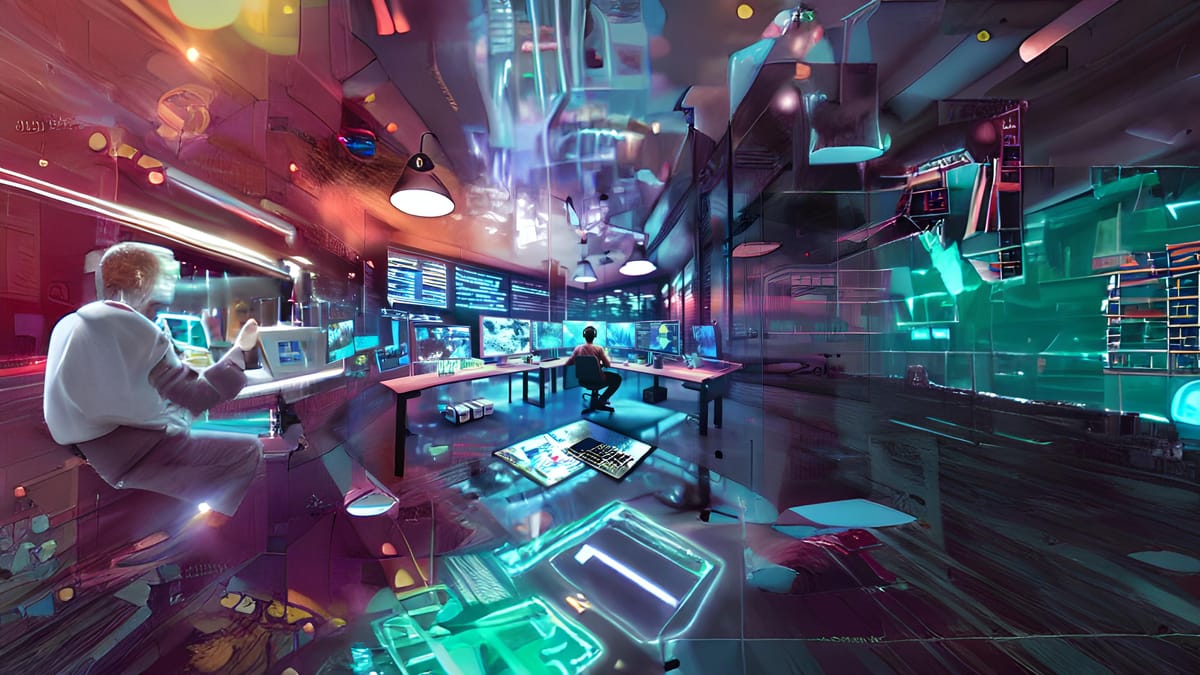Escapism: our hyper-reality addiction

We live in an autocorrected world.
- Social media constantly bombards us with our friends, strangers, and (most of all) our enemies.
- Photos are color-corrected, sharpened, enhanced, and filtered beyond realism.
- AI will surpass the point of human recognition and put tailored people/content into our lives.
It feels dystopian when you realize how much time we spend living manufactured lives. Modern humanity has become addicted to hyper-reality.
Hyper-reality
Hyper-reality is an altered state of mind removed from ordinary life. Hyper-reality is dangerous because it sets unrealistic expectations.
Social media is a familiar example: highly edited photographs and staged videos depict a perfect life. But these platforms only capture a narrow, heavily modified slice. 0.1% is displayed as 100%, preying on our minds and leaving us feeling inadequate.
Why aren’t we living those lives? What are they doing differently?
This question persuades us to run. Instead of confronting the world we live in, we drift into another. This phenomenon is known as Escapism.
Is Escapism healthy?
Vacations can recharge our batteries and prevent burnout. A great movie or book lures you into a thrilling fantasy. Social media isn’t all bad news; It can keep you in touch with old, physically distant friends.
Escapism isn’t inherently wrong; excessive and uncontrolled indulgence poses a problem. The dose is critical.
In modern society, we are constantly fleeing the present. Next time you’re in public, observe how many people are on their phones. It’s probably 90% or more.
Our pockets carry escapism perfection everywhere we go. The iPhone and the internet are the most effective hyper-reality tools ever created.
Since we can escape 24/7, many choose to (unconsciously). Staying present and limiting hyper-reality exposure is essential for a healthy life.
Staying present for dummies
- Limit your life to One Stimulus At a Time (OSAT). Most of our waking hours are spent juggling two or more mental tasks. Rarely do we have a moment to dedicate all our attention to a single activity. Here’s what this looks like in practice:
- When you’re eating, you’re only eating, not watching TV + doom-scrolling.
- You’re working, not working + listening to music.
- When you spend quality time with friends/family, your phone is silenced in another room.
- Another strategy is gratitude practices. Once or twice a day, write down a list of things you’re grateful for. I do this in the morning and at night, writing at least three things.
Gratitude helps refocus your mind. You probably won’t say you’re grateful for spending 2 hours on TikTok or getting blackout drunk last night. - Try creating realities. Read books, and let your mind create the world instead of a movie. Making art works, too: Producing instead of consuming.
Some other ideas worth exploring:
- Spend more time in nature
- Mindfulness practices
- Create “Do Not Disturb” time blocks for focused work
I’m not suggesting you abolish movies, drinking, and fun. The dose is critical.
What are you escaping from?
I believe escapism stems from invisible mental roadblocks. Instead of facing problems head-on, we favor hyper-reality. Drinking to forget is easier in the short term, but you will feel like shit tomorrow.
Create space to think. Escapism is devious and hard to surmount. Finding balance in the modern world will take me a lifetime, but progress makes it worthwhile.
Cheers,
Connor
Share this with someone <3